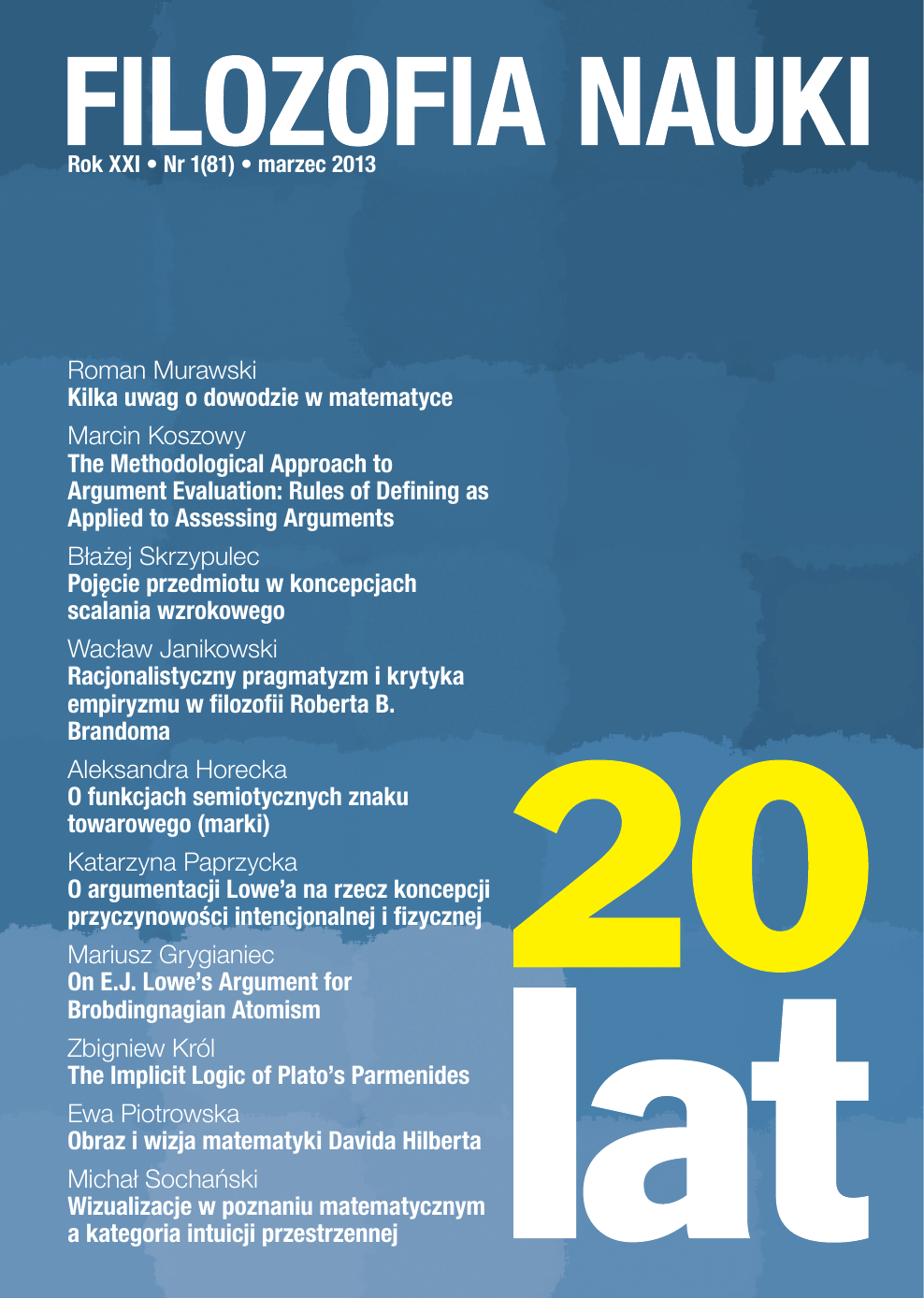On Lowe’s Argument for His Conception of Intentional and Physical Causation
Keywords:
Lowe, psychoneural token-identity, mental causation, physical causation, non-Cartesian substance dualism, counterfactuals, possible worldsAbstract
Lowe argues for a dualistic account of mental causation. He claims that the agent’s decision as well as a neural event both causally determine the resulting behavior in parallel and complementary ways. The decision determines that the arm arising occurs at all but it does not determine the detailed physical parameters of the movement. The neural cause determines the detailed parameters but does not deter-mine that the movement occurs. Lowe’s main argument for this view is the argument from counterfactual implications, which also undermines the psychoneural token-identity thesis. He argues that if the mental event token (the decision to raise an arm) had not occurred, the arm would not have risen, while if the neural event token (the complex neural event, which causes the arm to rise) had not occurred, the arm would still have risen albeit slightly differently. I first raise two counterexamples. Parallel arguments can be constructed to show that token identity fails at other micro-macro junctures. A token splash of hot water could be argued not to be identical with the token event of the motions of H2O molecules characterized by appropriate kinetic energy. A token expression of the will of the people could be argued not to be identical with the token event of such and such voting behavior on an election day. I then diagnose the problems with Lowe’s arguments for either counterfactual. The argument for the mental counterfactual relies on a premise that is quite plausibly false. The argument for the neural counterfactual is questionable because it involves the application of the possible-worlds semantics to counterfactuals with disjunctive antecedents. His argument against the token-identity thesis thus fails and his dualistic ac-count of mental causation is called into question.Downloads
Published
2013-03-01
How to Cite
Paprzycka, K. (2013). On Lowe’s Argument for His Conception of Intentional and Physical Causation. The Philosophy of Science, 21(1), 91–112. Retrieved from https://fn.uw.edu.pl/index.php/fn/article/view/707
Issue
Section
Articles















 Filozofia Nauki/The Philosophy of Science | ISSN 1230-6894 | e-ISSN 2657-5868
Filozofia Nauki/The Philosophy of Science | ISSN 1230-6894 | e-ISSN 2657-5868